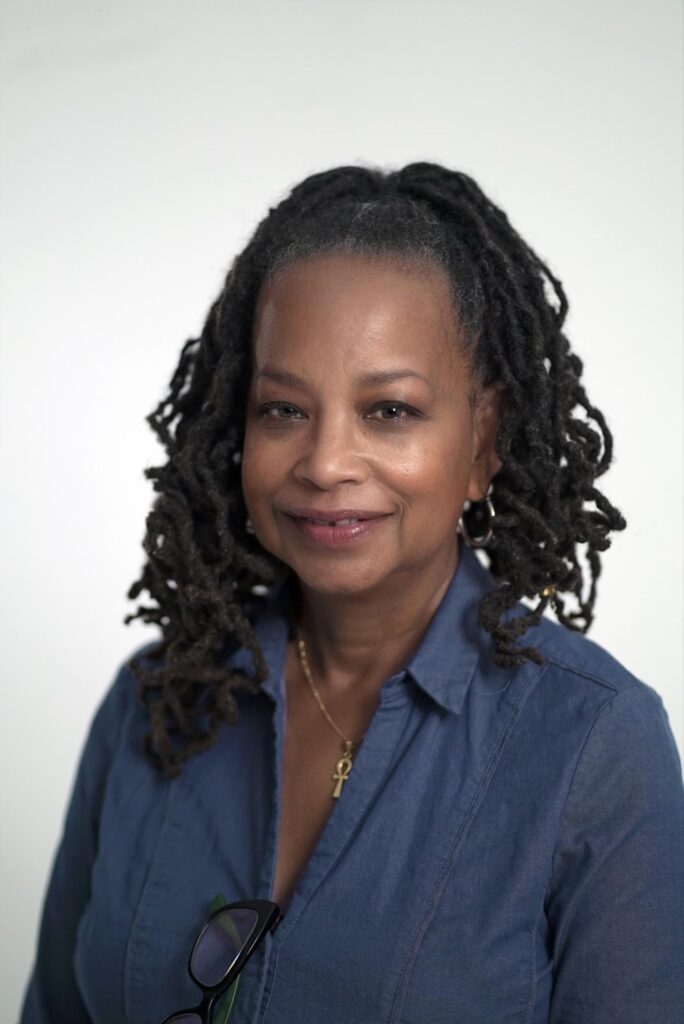
Denise Rolark-Barnes, the editor in chief of The Washington Informer, has made her mark on the Black journalism world. Storytelling has played a part in her life since she was a child, and as she continues to work as a publisher, she wants to spread a message around Black positivity in news.
Rolark-Barnes was born in 1954 and is a Washington, D.C., native. Her father, Dr. Calvin W. Rolark, started The Washington Informer publication in 1964. Rolark-Barnes officially joined the staff of the publication in 1980; however, at 9-years-old she began gaining experience helping with the paper. Initially, working at The Washingotn Informer was her summer job where she would file court papers and make deposits. She is now serving as the publisher and second-generation owner of The Washington Informer, and has been since 1994.
Lafayette Barnes, Rolark-Barnes’ son, continued her legacy in creating The Bridge. The Bridge is a newsletter extended from The Washington Informer that focuses on providing cultural information pertaining to Black millenials. Barnes has also worked with The Washington Informer for the past 12 years.
“She took over the format at a young age without much direction and without much experience. So you know, she has done a dynamic job of maintaining the legacy of The Washington Informer. Through my grandfather and her individual efforts creating a great network,” Barnes said.
“She has also made her presence in the National Newspaper Publishers Association as a Chairwoman. That is a super important opportunity to be able to connect nationally and internationally,” he continued.
During her college years at Howard University, she wrote for The Hilltop from 1974 to 1975. She graduated with a bachelor’s degree in communication in 1976. Rolark-Barnes went on to pursue her Juris Doctor degree at Howard, and during her time, served as the editor of the Howard University School of Law school newspaper, The Barrister. She started when she was a sophomore and continued as its editor until she graduated in 1979.
Initially, she did not plan on working with The Washington Informer as an adult, but she wanted to help her dad.
“I felt that if I left the paper would shut down, and maybe I didn’t want that in my conscience. I was able to bring people into work, it was almost like a club, exciting. We kept trying to find ways to do more and do better,” Rolark-Barnes said.
Originally, Rolark-Barnes wanted to practice law at the Federal Communications Commission, but she ultimately decided to use the knowledge from law school to better analyze the news and to pay attention to issues that needed to be addressed.
“Denise has transformed the business into a multimedia organization; in addition, she brings the Rolark name and also a high level of integrity,” Ron Burke, The Washington Informer director of advertising and marketing said.
The Washington Informer focuses on highlighting Black history facts and further an overall message from a Black perspective. According to the website’s mission statement, “We continue to do only positive news, as we strive to educate, empower and inform.”
“She has developed a few concepts that did not exist before she came. The Washington Informer is the sponsor of D.C. National Spelling Bee, so we provide spelling bee services for elementary and middle schools. We also provide leadership for Martin Luther King Jr. March and she created an annual African American heritage tour,” Barnes said.
The weekly publication provides three to five stories on their website daily. As it currently stands, there have been over 2964 issues and the staff will commemorate its 58th anniversary on Oct. 16..
“This is not a mission statement but to put it simply – to deliver news for and about the African American community from our perspective and to grow the revenue streams,” Burke said.
Other segments of the paper include The Bridge, Washington Informer News and Washington Informer Charities that focus on youth and adult literacy in the Black community.
“Everything that we write today becomes history for tomorrow. So, it is important that we preserve these things,” Rolark-Barnes said.
Copy edited by: N’dia Webb

